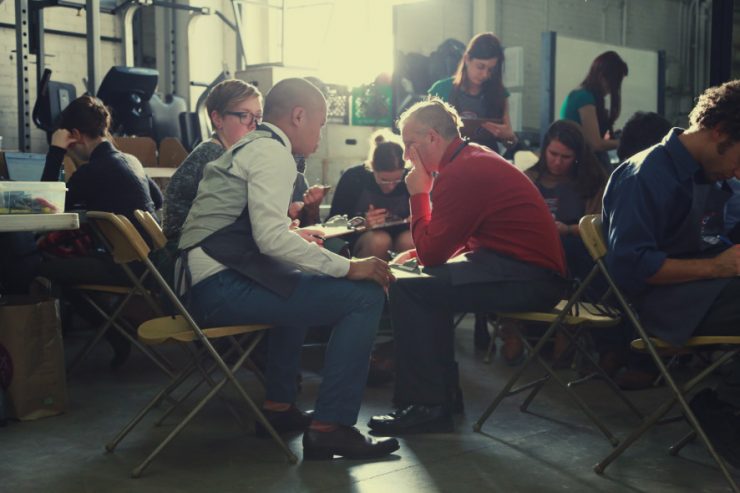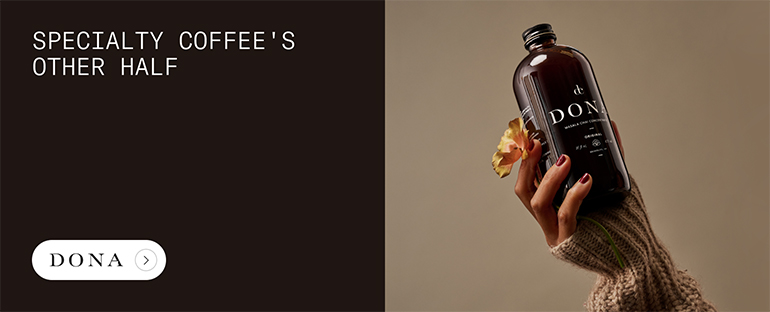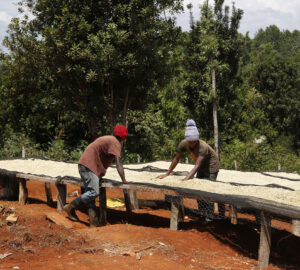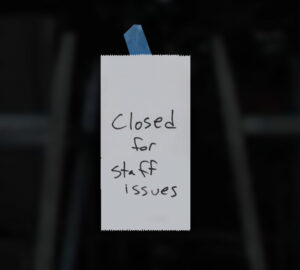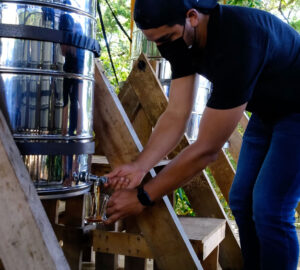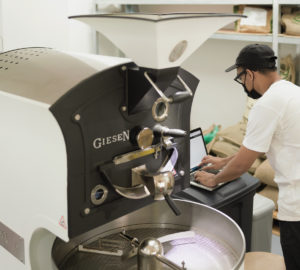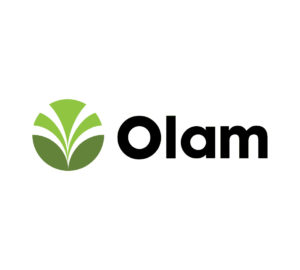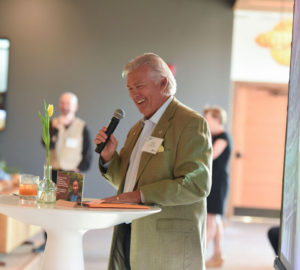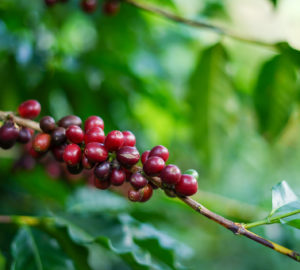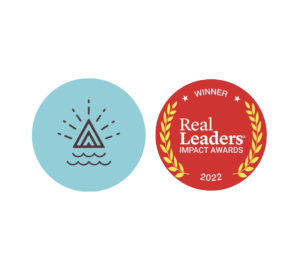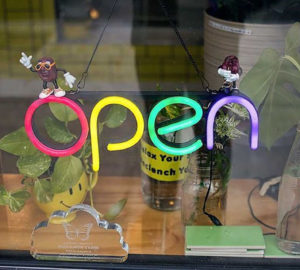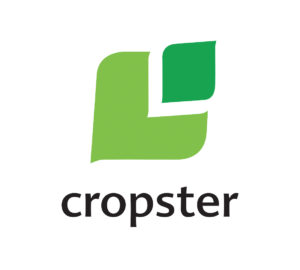News yesterday of the Specialty Coffee Association of America’s decision to suspend its regional barista competition cycle leading up to the United States Barista Championship was received across the US coffee community with, well—lots of feelings. From the initial Twitter agita to some unfortunate false reporting to those who picked up the pieces to digest the news more deeply, yesterday was a rollercoaster of coffee emotion within the American specialty coffee industry, even more tumultuous than those last two finalist announcements.
By the end of the day, we found ourselves reading two considered responses to the news that heralds the end of an era for many seasoned and up-and-coming coffee professionals alike.
First, Chris Baca and Jared Truby‘s culture & industry website Trubaca published a very intelligent take on what this regional news meant to them, outlining several ways they felt the competitions could be saved. Truby and Baca are both career barista competitors, long associated with Verve Coffee Roasters in Santa Cruz, California, and now working in SoCal at The French Press in Santa Barbara. The article by Chris Baca includes the following bittersweet observation:
Competitions are also a better learning tool than any class, certification, or workshop.
Why? Because the burden is on the barista to improve. Knowing you are responsible for your own success and/or failure, and knowing that you have to stand up and give this presentation in front of all your peers, with a microphone on, while being projected onto a jumbotron…well, that makes you up your game just a bit.
Classes and workshops offer a much more passive user experience with a reward nowhere near the reward you get from busting your ass for months and then letting it all hang out. Where you place on the scoreboard hardly matters; it’s about the process. As Billy Wilson (multiple time regional winner) said today: “The real value was in seeing your barista compete. Fall in love…The value was in learning the craft.”
Forget about the idea of the competitions finding “the best in our industry” or “the one perfect representative for specialty coffee.” In my mind it’s about exposing our industry to as many people as possible. The regional competition circuit is how I was exposed to this whole specialty coffee world I now live in. Now with the need to be BGA level 1 or 2 certified, or have been active in competition within the past 2 seasons, the USBC circuit is a completely insular industry event…absolutely zero new industry exposure will come via the competition circuit.
Regional events (when hosted in the right cities) provided an opportunity for people to cruise in off the street and see what specialty coffee was all about. Cafe regulars would tell friends of friends “you should cruise by and check this out, my local barista is competing today.” It’s a very real opportunity for people who wouldn’t usually care, to take a peek at what we’re all about. No one walks in off the street to check out a level 1 certification test, or randomly happens to stop by espresso 101..it just doesn’t happen. It functions in the same way that people who don’t cook, and will never take a cooking class, will watch Iron Chef and get inspired by food because it’s interesting and accessible. Whether or not you think the rules and set-up of Iron Chef are the be-all and end-all of food hardly matters. Iron Chef (and similar shows) bring an increased level of awareness to high end food, that most people just wouldn’t be exposed to if these shows didn’t exist.”
You should read the whole thing on Trubaca.com.
And for another comprehensive response, we turn to longtime industry rabble-rouser and competition format architect Nicholas Cho, who on Tumblr yesterday published a set of strategies for potentially saving the USBC regional leagues. Cho, who began competing at coffee competitions in 2004 and is now the co-owner of San Francisco’s Wrecking Ball Coffee Roasters, authors a measured, yet passionate, set of concrete steps forward. Let’s excerpt:
The SCAA news today that they are pulling the plug on the regional competition events is simply a big mistake. It’s not a mistake because we’re gonna miss them, it’s a mistake because they should not go away, and they can absolutely occur without SCAA needing to lose money.
Speaking of that, I am very sympathetic to SCAA’s struggle here. The events were indeed costing a lot, and there were multiple SCAA staff members who were focused on producing these events, for a large total expenditure. This shouldn’t have to continue. That’s where I agree. Where I disagree is what to do about it.
The RBC’s [Regional Barista Competitions] used to happen with budgets between $15K and $50K, not counting sponsor in-kind support (equipment, smallwares, etc). SCAA would send one (count ‘em: ONE) staff member, SCAA would collect the registration fees (which helped cover staff and administrative costs), and the host company was responsible for the rest. Judges would volunteer, stage volunteers would sign up, competitors would register, and we were off to the races! There was one more relevant rule: host companies were not allowed to hold the event at their own facility. This was to minimize “unfair advantage” claims, as well as to keep the branding of the event from being too much of a marketing coup for the host.
So here’s what I think should happen now.
Cho then goes on to outline, using the SCAA’s committee structure, a road map on how to potentially save the USBC regional tournaments. This is more must-read stuff if you’ve been following the story closely. Go click here now.
Earlier this morning, the SCAA released this statement via Facebook:
The leadership of the SCAA heard the outcry over the cancellation of the regional coffee competitions loud and clear. We’re united in a desire to celebrate the craft of the barista and the other coffee professionals served by the competitions. The SCAA board and BGA leadership will be meeting in person this weekend in Atlanta, and have committed to redoubling their efforts to try and find a way to preserve regional barista competitions. We’ll keep you posted on any outcomes!
Will something better rise from the ashes—a set of minor-league efforts that foment the same spirit of professionalism and community? If there’s one thing watching literally dozens of barista competitions throughout the years has taught us, it’s that coffee people can and do pull together to rise from adversity and better their own craft. We expect no less in weeks to come. Watch this space.
An earlier version of this article implied that Mssrs. Baca & Truby were currently involved with HoneyCo Coffee Roasters. This is inaccurate; Mr. Baca was previously an owner at HoneyCo. but has since sold his interest and is no longer involved. We regret the error.











